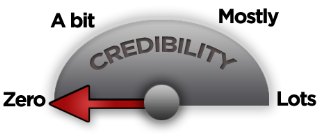Vince Jordan, an advocate for broadband competition in Longmont, Colorado, wrote the following op-ed for the local paper about the upcoming referendum 2A. He has given us permission to reprint it here.
“There you go again” (to quote President Ronald Regan).
Well, it has already started. The folks who spent almost a quarter of a million dollars in the elections two years ago to convince the citizens of Longmont that being able to take further advantage of the fiber network they already own and are using is too dangerous for them, are at it again. No doubt by now, many of you have received one if not multiple “robo-calls” trying to convince you that the City is going to raise your taxes as a result of a yes vote on 2A. The first three words of Ballot Issue 2A say, “Without raising taxes”, but, since the opponents of this ballot, (those being the two mega-corporations who stand to benefit from you voting against 2A), can’t come up with any good reasons against the measure, they are resorting to the tired old cry of “they are going to raise your taxes!”
Citizens of Longmont, from 1997 to 2005, we had the right to use the asset that the city owns, namely the fiber network, to the benefit of ALL of the businesses and citizens of Longmont. The same corporations that are trying to “buy” your vote again, as they successfully did in 2009 with their “No Blank Check” campaign, in 2005 were able to lobby for and buy a law that took away our right to fully utilize this city owned asset. What ballot issue 2A is asking is for the citizens of Longmont to take back a right they once had.
This fiber network, which is fully operational today and used by the city for city purposes, and in fact already benefits the citizens of Longmont to some degree by keeping city service communications cost low, can do so much more. Our fiber network can be used to enhance the three Es, Employment, Education and Entertainment, here in Longmont. Low cost communications is as much a necessity today as is low cost power and water. Longmont already benefits from the lowest power rates in the country and the best service. Why wouldn’t we want the same advantage in the communications network that serves our businesses, our schools and our homes?
 This is a group with absolutely zero credibility. But they have tons of funding -- likely from Comcast and incumbent trade groups that fight these initiatives everywhere to preserve what is essentially a monopoly for the cable and telephone companies. We just republished an op-ed outlining some these tactics from 2009.
Now the "Look Before We Leap" group is accusing the City of distributing propaganda.
This is a group with absolutely zero credibility. But they have tons of funding -- likely from Comcast and incumbent trade groups that fight these initiatives everywhere to preserve what is essentially a monopoly for the cable and telephone companies. We just republished an op-ed outlining some these tactics from 2009.
Now the "Look Before We Leap" group is accusing the City of distributing propaganda.


